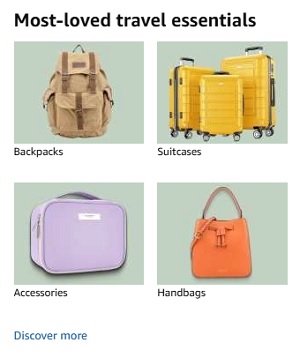So, what kind of things should you be protecting against? Travel insurance can cover a range of possibilities. While it may not be possible to plan for absolutely everything that may go wrong, you can get cover for most things. Here are some options you should consider:
Medical coverage
"You can never go wrong by opting to have medical cover, particularly if you're adventurous or like partaking in water sports or sports in general," Hallak explains. If you or someone in your family gets sick or has an accident while you're away, medical costs can quickly snowball. If you don't have travel insurance to offer any protection, it's up to you to pay the costs yourself. Why take the chance?"Worldwide medical insurance can either be covered by purchasing a general travel insurance policy or by purchasing separate, international cover," advises Hallak. The amount of travel that you do and any outstanding health issues are factors in deciding which option to take.
Your holiday destination can have a big impact too. Medical bills can be notoriously high in countries like the USA and some parts of Asia so it's very risky to travel there with no protection. In some cases, you may even be legally obliged to arrange health insurance. "Be aware of destinations like Cuba, for example, where medical insurance is actually required to enter the country," she warns. This won't be true of that many countries but you'll still want to check the policy when you're booking trips, just in case.
Other things to think about
The health insurance aspect isn't the only reason to think seriously about travel insurance. You'll also want to look for a policy that covers lost/stolen luggage, trip cancellation and personal liability to cover a wider range of eventualities.You'll be covered for some or all of the costs of luggage and personal effects if lost or stolen. However, many policies will only pay out up to a certain amount per item so you may not be covered in full for more expensive items. Be aware that some insurance companies will not pay out unless you can prove that you took all possible steps to safeguard your belongings.
If circumstances dictate that your trip needs to be canceled, you won't receive anything back unless you have cancellation cover. "Unplanned disruptions such as cancellations caused by bad weather or travel organiser collapse often fall outside general travel insurance," says Hallak. "One simple way to ensure money back in the event of unplanned disruptions is to book using a credit card -- this should mean money back if any of these events occur." You will often need to arrange cancellation cover when you book your trip to be able to make a claim.
Accidents happen and if it's proven to be your fault, personal liability cover will protect you.
Things to watch out for
For most people, choosing the right policy will simply be a case of shopping around as you would when searching for cheap flights, says Hallak. However, if you're planning to be adventurous or particularly active on your trip, there are some things to be aware of when choosing travel insurance. For example, not all insurers will cover things like bungee jumping and even for those that do, there may be limits. "When it comes to extreme sports, some insurers may limit the number of times that you can participate," warns Hallak. For example, they may cover a set number of jumps only or refuse to pay out if you get involved in certain situations.Specialist sports equipment is another one that may not be covered by general travel insurance. Read the small print and if it's not covered, look for more specialist insurance, Hallak suggests. You may need to pay a bit more for this but it's almost always cheaper to be insured than to replace the items if they're lost or stolen.




